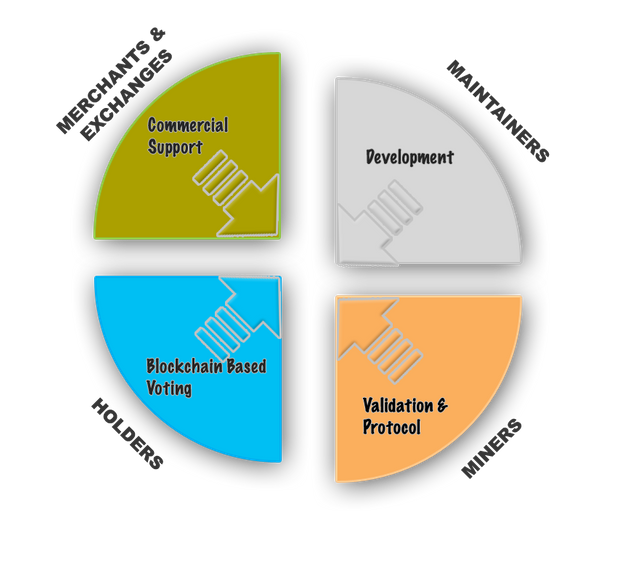RE: DASH: Decentralized Governance or Centralized Tyranny?
Is this supposed to be a serious appraisal or a thinly veiled sour-grape from a disenfranchised ex-holder ? It’s difficult to tell the difference but I’ll give it the benefit of the doubt ;)
First of all, Dash's decentralised governance system was designed to enfranchise holders, not non-holders. In that respect it's working completely as intended. The scewed logic above attempts to make a slightly ludicrous comparison with democracy which works on a "1 person 1 vote" basis that would in fact be suicidal of it were applied directly to an asset governance and not weighted in favour of those with most at risk.
Secondly, lets stop for a moment and draw attention to the one significant aspect of governance that this article blatantly ignores: scope.
A classic governance model such as bitcoin's notionally delegates control to three significant stakeholder categories: miners, merchants and developers. Holders only have an indirect influence through markets - i.e. if they don't like the direction of travel their only recourse is to divest themselves of the asset in markets.
Dash adds a fourth stakeholder category to represent holders but even that does not give them 'control' over all aspects of policy - or even the significant ones. It’s influence is significant but its scope is confined to only two aspects:
an executive role in the allocation of the periodic block reward to development proposals from contractors
a consultative role in the form of informal polling of holding community opinion

Majority mining still rules ultimately over protocol. Merchants still decide what to support and developers can write what code they want independently of Dash's governance system. They may even have that protocol accepted by miners in which case they've bypassed it completely.
Finally, though Dash may have its 'whales' like every other asset does, it's in fact one of the better distributed of the cryptos - far better than Bitcoin for example. The founder just divested himself of 80% of his holdings and OTC trades for the last 2 years have accounted for the largest known holder seeing a reduction of 300-400 masternodes to around 80. Despite that, none of them were ever anywhere near the "Satoshi'" level of centralised holding and all of them are well outnumbered when it comes to voting potential.
The perspective presented in this article therefore represents little more than a troll-like attempt to paste some-kind of faux ethical conflict onto what is actually an extremely successful and growing initiative.